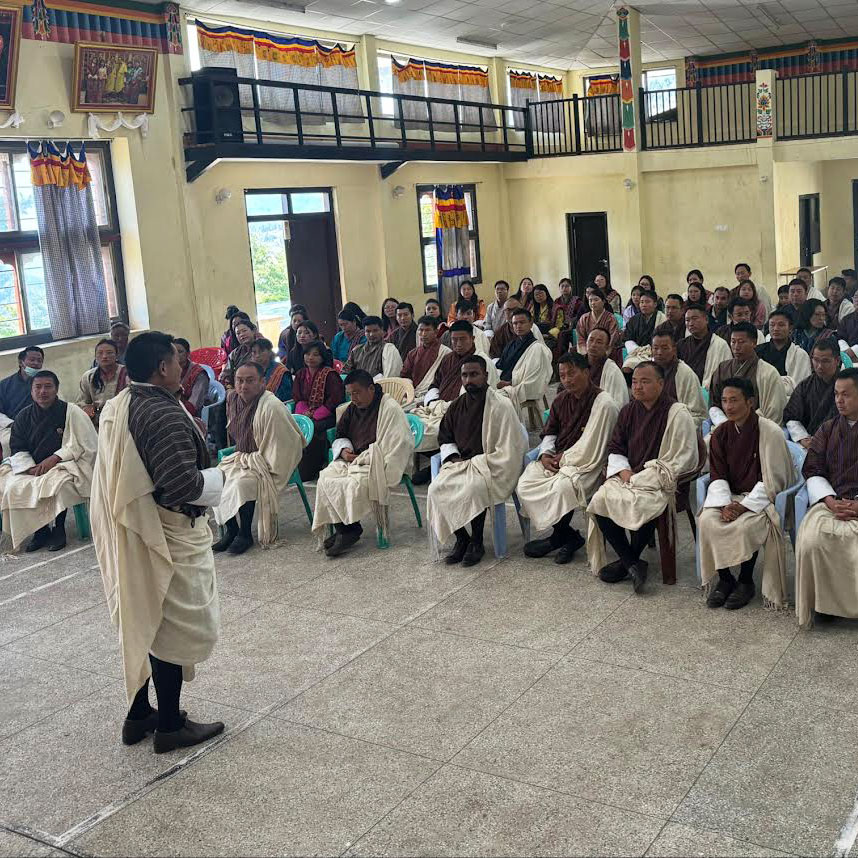Thinley Namgay
Amid growing concerns over the erosion of driglam namzha in schools and society at large, a series of trainings are conducted to foster traditional Bhutanese social etiquette and other aspects of driglam namzha.
As part of this initiative, 970 teachers and staff from 20 government and six private schools have been attending a 12-day driglam namzha (etiquette) training in Paro which will end today. The training, which began on August 9, focused on the role of teachers and schools in cultivating social etiquette among students, including other aspects of driglam namzha.
This is the second such training organised by the dzongkhag’s education sector and the Driglam Division under the Home Ministry, following a similar event in Wangdue.
The deputy chief dzongkhag education officer of Paro, Karma Tshering, said the primary goal of the training is to address the growing concern of deterioration of driglam namzha in schools and the society. “Teachers and supporting staff play a crucial role in the lives of students as they interact and learn from them.”
The training also aimed at improving overall well-being in schools by addressing issues such as suicide, bullying, and parental engagement, among others.
The training included both theoretical and practical components of driglam namzha.
A teacher from the Wangsel institute for the Deaf, Dechen Wangdi, said that the programme was particularly beneficial for hearing impaired students, who often face communication barriers at home.
“Now that all teachers from the Institute, including hearing-impaired instructors, have been trained in driglam namzha, we are confident that we will be able to impart essential human values that we have learnt from this programme,” Dechen Wangdi added.
The Principal of Drukgyel Central School, Wangmo, highlighted the significance of the training in reinforcing Bhutanese values. “I understood why it is important to be Bhutanese in body, mind and speech through this programme,” she said. “This training helped us recognise areas for improvement to bring progress in our society.”
Wanakha Central School’s teacher Damcho Dorji said that hands-on components of the training such as learning how to wear kabney and rachu enhanced participant engagement and empowered teachers to impart cultural values to their students.
Drupthop Zangmo, teacher, from Khangkhu Middle Secondary School commended the training for its focus on physical presence, communication skills, and a mindful approach to interactions. “Driglam namzha is crucial for fostering a respectful and harmonious environment,” she said.
Some participants suggested that similar training sessions should be held more frequently and extended to the broader public to promote cultural values.
While officials said that the training is planned for schools in all dzongkhags across the country, the implementation will depend on the available funds from each dzongkhag’s education sector, which are required to cover costs such as food and refreshment.


